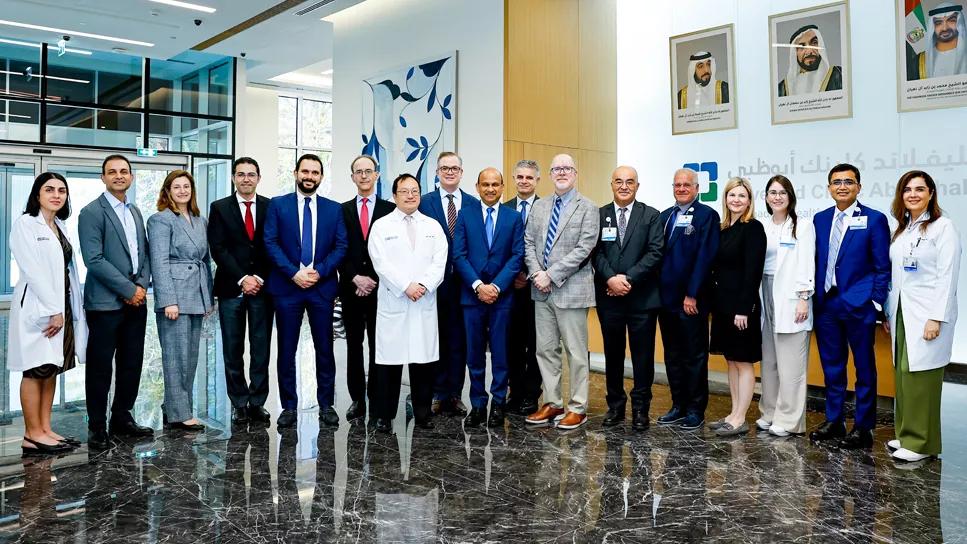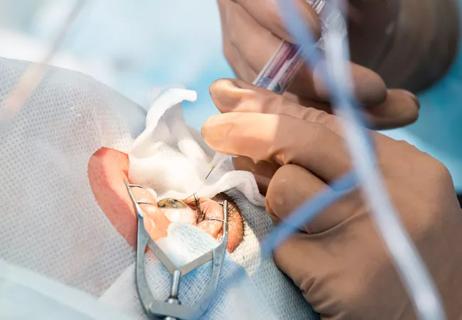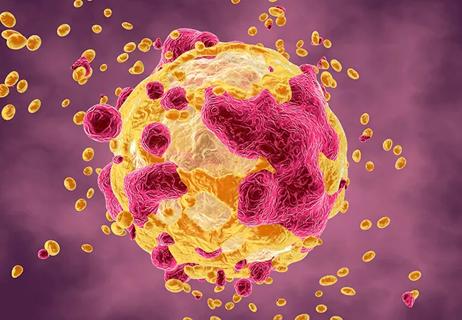Cleveland Clinic Cancer Institute brings multidisciplinary care, precision oncology and clinical research to the United Arab Emirates

Nearly 10 million people of 200 different nationalities live in the United Arab Emirates (UAE), yet in the realm of cancer care, this population’s access to advanced care has been limited until recently. Historically, access to advances like genetic testing and precision oncology were hard to find, and clinical research has been sparse in the region, resulting in severe gaps in understanding the efficacy of oncology treatments on this population.
Advertisement
Cleveland Clinic is a non-profit academic medical center. Advertising on our site helps support our mission. We do not endorse non-Cleveland Clinic products or services. Policy
In 2023, Cleveland Clinic’s Fatima bint Mubarak Center opened, with a team focused on tackling these issues. “We have an obligation to work across the globe to better understand how treatments work in different populations – and to reduce the burden on patients impacted by cancer,” says Stephen Grobmyer, MD, chair of the oncology institute at Cleveland Clinic Abu Dhabi.
Multidisciplinary care is the essence of the center. In many regions, the approach to cancer care is disjointed. Patients need help from many specialists across different healthcare settings, resulting in excess travel, as well as delays in diagnosis and treatment. The Fatima bint Mubarak Center was designed to coordinate care around the patient. Physicians and nurses were recruited as teams that each focus on a specific disease area. When patients come to the center, their team of specialists is with them from the beginning.
“Everyone touched by cancer is scared,” says Dr. Grobmyer. “The onus is on us to address those needs early, respectfully and in an impactful way. One of the most stressful times is between diagnosis and developing a care plan, so we have a nurse navigation system that’s organized by disease. Through this approach, specialists can collaborate and reach out to each patient with a treatment program more quickly to reduce anxiety.”
Modeled after Cleveland Clinic’s Taussig Cancer Center, the Fatima bint Mubarak Center regularly consults with oncology and hematology specialists in Cleveland, working together on tumor boards for the presentation of complex cases. Pathology teams in Abu Dhabi also share slides of unusual cases with pathologists in Cleveland to guide decision making.
Advertisement
Patients have been reassured by this approach, giving the center high marks for patient experience. Having demonstrated the effectiveness of this multidisciplinary model, the center is now focused on building on its depth of expertise, as well as focusing on the unique programs that increase treatment precision.
Adaptive radiation therapy is among the advances offered at the center. Typically, if a patient’s position on the table is slightly off or an internal organ has moved even a millimeter, the intensity of the radiation beam may not be centered squarely on the tumor. Traditionally, patients had a CT scan before each radiation treatment so their radiation oncologist could adapt the plan accordingly. However, some of these differences could be imperceptible to the human eye.
To solve this issue, the center combines CT scans with artificial intelligence to replan radiation each time the patient presents for treatment. With the only adaptive radiation therapy program in the UAE, the center is monitoring results closely, and is observing lower toxicity in patients treated for conditions such as prostate cancer.
The team is particularly focused on delivering precision oncology through its genomics program. Working in partnership with the M42 sequencing facility and the Department of Health in Abu Dhabi, the center accesses patients’ genetic data to improve diagnosis and treatment. The next big advancement to come to the center is somatic sequencing capabilities. “Understanding the genetic mutation of a tumor can inform which medications will be most effective in each patient,” says Dr. Grobmyer. “Sometimes this reveals a treatment you wouldn’t expect.”
Advertisement
The center has also created a clinic dedicated to the management of patients with a genetic predisposition to cancer. Center researchers are studying these genes to inform cancer prevention efforts. They are also expanding the use of genetic counseling, which has been underutilized in the UAE. By identifying people who have concerning genetic mutations, they can provide care proactively based on evidence-based guidelines.
Clinical trials are not as common in the Middle East as elsewhere. There is a need to ensure equal access to all. When emerging therapies aren’t thoroughly tested across different populations, it leaves patients at a significant disadvantage.
A major focus of the center is to launch clinical trials for some of the most commonly occurring cancers patients in the region are facing. Cleveland Clinic is now co-developing clinical trials between the US and UAE through North American cooperative groups, industry sponsors and collaborators at Cleveland Clinic’s main campus in Ohio. The aim is to better understand and prevent early-onset cancers, study the efficacy of potential treatments and better manage the side effects of cancer treatments.
Through their work, the center’s staff discovered underutilization of cancer screenings across the UAE. The problem is twofold: Fewer patients get screened regularly, and diseases like breast cancer seem to be occurring at a younger age. “Nearly a quarter of our patients with breast cancer are under 40. Screening recommendations in most places are for age 40+, but the answer isn’t as simple as recommending earlier mammograms because they aren’t as effective in younger people due to the density of breast tissue. So, we must challenge ourselves to think differently about ways to screen different populations,” says Dr. Grobmyer.
Advertisement
Advertisement

New phase 1 trial showcases Neurological Institute’s interdisciplinary study capabilities

Cleveland Clinic Cancer Institute takes multi-faceted approach to ensuring clinical trials representation

How to screen for and manage treatment-triggered uveitis

Driving advances in cancer care

Growing public interest in hallucinogens highlights their therapeutic promise and potential perils

Previous studies, trial aims and the potential role of immunotherapy

Research enables precision medicine beyond patients with changed mutational status

Cleveland Clinic’s Adult Reconstruction Research leaders share what they’ve learned over 16 years